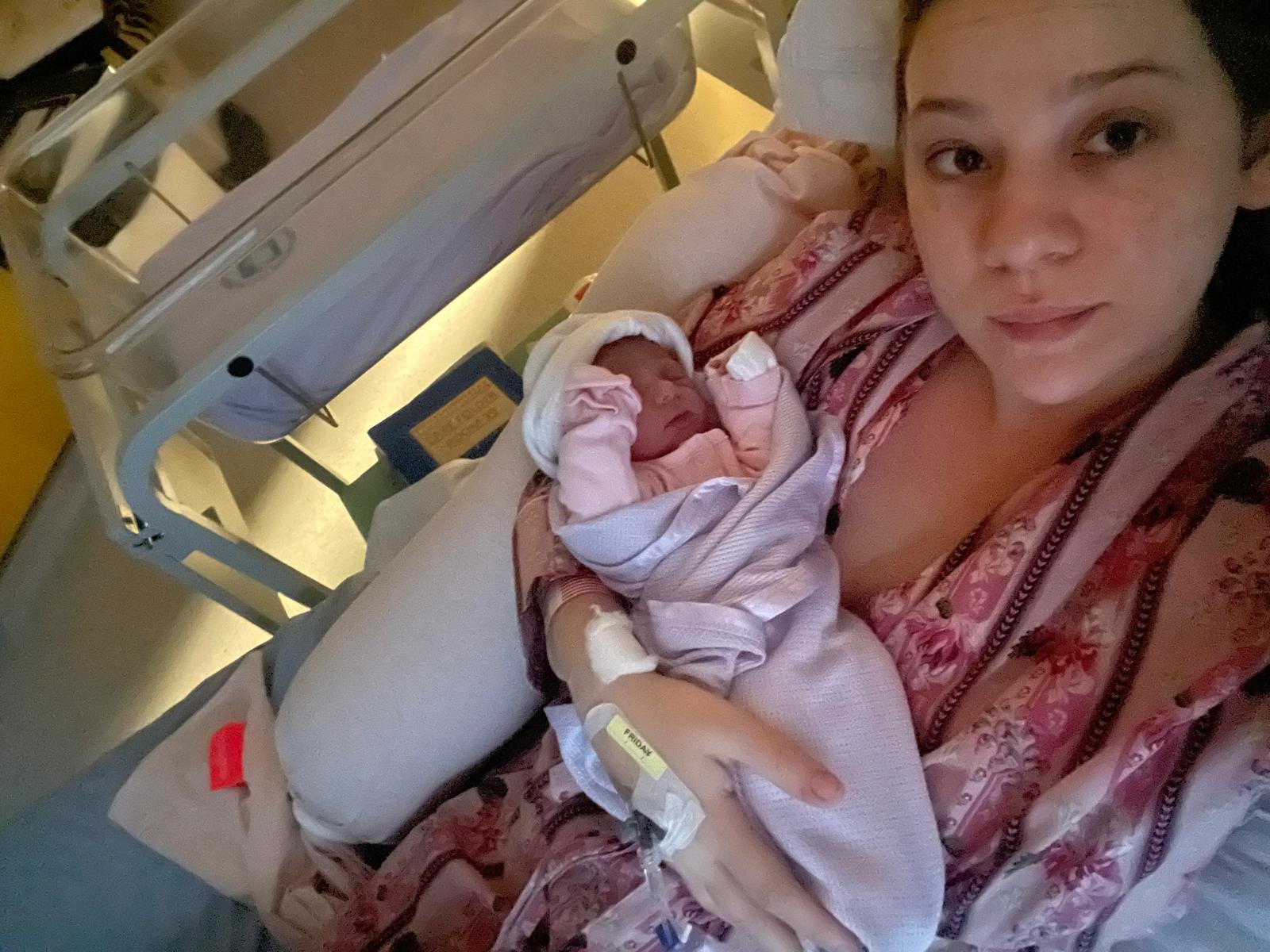
How Sharing Your Birth Story Can Help You Heal
Childbirth is a profound physiological and psychological event. While it’s often romanticised in culture, the reality is far more complex. For many women, birth leaves behind not just stretch marks and scars—but psychological imprints that quietly shape their postpartum experience.

What to Ask at Your 6-Week Postnatal Check-Up
The six-week postnatal check-up marks a pivotal moment in your recovery journey. It’s more than a tick-box on your postpartum calendar—it’s a chance to refocus on your health, body, and emotional well-being after giving birth. Whether your experience was smooth or complicated, this appointment is a space to ask honest questions and advocate for your care.

5 Ways to Support Your Mental Health After Giving Birth
Giving birth is a transformative experience, both emotionally and physically. As joyful as welcoming a new baby can be, it’s also a time of significant adjustment and vulnerability. Supporting your mental health postnatally is just as vital as caring for your physical recovery. Here are five effective ways to nurture your mental wellbeing after giving birth.

7 Signs You Might Be Experiencing Postnatal Anxiety
Welcoming a baby into the world is a monumental life event. While many new mums expect to feel joy and fulfilment, it’s not unusual to feel overwhelmed, worried, or even fearful. These feelings can go beyond the common "baby blues"—you may be experiencing postnatal anxiety.

Matrescence: The Psychology of Becoming a Mother
Before I became a mother, I had no idea there was a word for what I was going through. I knew my body would change — I’d read all about birth, feeding and baby sleep routines. But no one warned me that I might feel like a stranger to myself. That my sense of identity would stretch and shift just as much as my skin had during pregnancy.

Postnatal Nutrient Depletion: What Mothers Need to Replenish
Growing, birthing, and feeding a baby takes an enormous toll on the body. After birth, many mums experience a steep drop in key nutrients—a phenomenon known as postnatal nutrient depletion. This isn’t just “new mum tiredness.” It’s a physiological gap that, if left unaddressed, can undermine healing, hormone balance, mental clarity, and emotional resilience.

Nesting Instinct: What Science Says About Pre-Birth Prep
The nesting instinct is a powerful drive that kicks in during pregnancy—usually in the final trimester—urging expectant parents to get their home “baby-ready.” It can feel like an urgent mission: clean every corner, stock every shelf, wash every onesie. It’s part instinct, part anxiety, and often a little bit magica

How Birth Partners Influence Hormones During Labour
The journey of childbirth is not only a physical process but also a deeply emotional and hormonal experience. While medical professionals play a crucial role, the presence of a supportive birth partner can significantly impact the hormonal balance during labour, influencing the overall birthing experience.

Touch & Neural Wiring: Why Early Sensory Contact Matters
From a baby's first moments, touch serves as a fundamental bridge between human connection and brain development. But why does early sensory contact play such a pivotal role in shaping neural pathways?

Let-Down Reflex Explained: How Breast Milk Starts to Flow and What to Expect
The let-down reflex, also called the milk ejection reflex, is a natural process where your body releases stored milk from the alveoli in your breasts through the milk ducts to your baby. It’s triggered by the hormone oxytocin, released in response to nipple stimulation or even baby cues like crying or touch.

Understanding Caesarean Birth: Caeserean Awareness Month
April marks Caesarean Awareness Month — a time to recognise, inform, and empower parents who birth their babies abdominally. At The Bubba & Me Club, we’re committed to inclusive education that supports every kind of birth journey, including Caesarean births, which account for roughly 1 in 4 births in the UK.
Whether planned or performed in an emergency, Caesarean birth is birth — and it deserves to be met with respect, knowledge, and care.

Understanding Baby Blues vs. Postnatal Depression: Clinical Signs and When to Seek Help
Bringing a new baby into the world is a life-changing event filled with joy, but it can also come with emotional challenges. Many new mothers experience mood swings, tearfulness, and anxiety in the days following birth — commonly known as the baby blues. However, when these feelings persist or intensify, they may indicate postnatal depression (PND), a more serious condition that requires support and treatment.

Breast Milk: Nature’s Superfood and How Your Body Makes It
Breast milk is often called "liquid gold" — and for good reason. It’s a living, dynamic substance that not only nourishes your baby but adapts in real time to their needs. But have you ever wondered exactly what’s in breast milk and where it all comes from?

Healing After Birth: A Guide to Perineal Care & Abdominal Birth Recovery
Bringing a baby into the world is an incredible experience, but your body also goes through significant changes and challenges. Whether you’ve had a vaginal birth with perineal tearing or an episiotomy, or a caesarean delivery, your body needs time, rest, and the right care to recover fully.

Hospital Bag Checklist: What You Really Need
Packing your hospital bag is one of the most exciting steps in preparing for birth. Whether you're planning a vaginal birth or a caesarean, having everything you need packed and ready by week 36-37 can help you feel organised and relaxed.

Postpartum Hair Loss: Why It Happens & What You Can Do
Many new mums are surprised when, a few months after giving birth, they start shedding more hair than usual. If you’ve noticed your hair falling out in clumps or your once-thick locks looking thinner, you’re not alone. Postpartum hair loss is completely normal—and while it can be distressing, there are ways to manage it.

How to Cope with Pregnancy Fatigue: Tips for Boosting Energy
Pregnancy fatigue is one of the most common symptoms expectant mothers experience, particularly in the first and third trimesters. Growing a baby is hard work, and the hormonal changes, increased blood production, and emotional shifts can leave you feeling utterly exhausted. While pregnancy fatigue is completely normal, there are ways to manage it and maintain your energy levels throughout the day.

Let’s Talk About the Cervix: It’s Role During Fertility & Pregnancy
The cervix is a small but essential part of the female reproductive system. Sitting at the lower end of the uterus, it connects to the vagina and plays a vital role in both fertility and pregnancy. Despite its importance, it often goes unnoticed—until you’re trying to conceive or expecting a baby.

My Birth Story: Navigating a High-Risk Pregnancy and Preterm Labour
Bringing my second child into the world was a journey filled with unexpected challenges, emotional highs and lows, and ultimately, the deep satisfaction of overcoming adversity. My pregnancy was far from straightforward—marked by early complications, hospital stays, and a tough postpartum period—but it was also the experience that strengthened my passion for helping other women navigate pregnancy, birth, and beyond.

Let’s Talk About the Cervix: It’s Role in Fertility & Pregnancy
Breastfeeding has been practiced for thousands of years, and while it may seem like the most natural thing in the world, the science behind breast milk is nothing short of extraordinary. This unique substance is a carefully tailored, living fluid that evolves to meet your baby’s nutritional and immune needs. Let’s explore the incredible science behind breastfeeding, how breast milk works, and some fascinating facts that highlight why it’s often referred to as "liquid gold."

